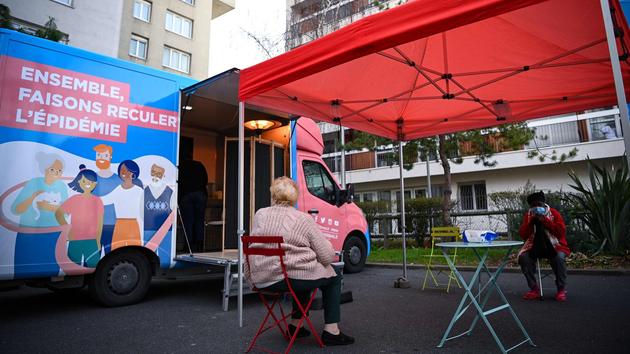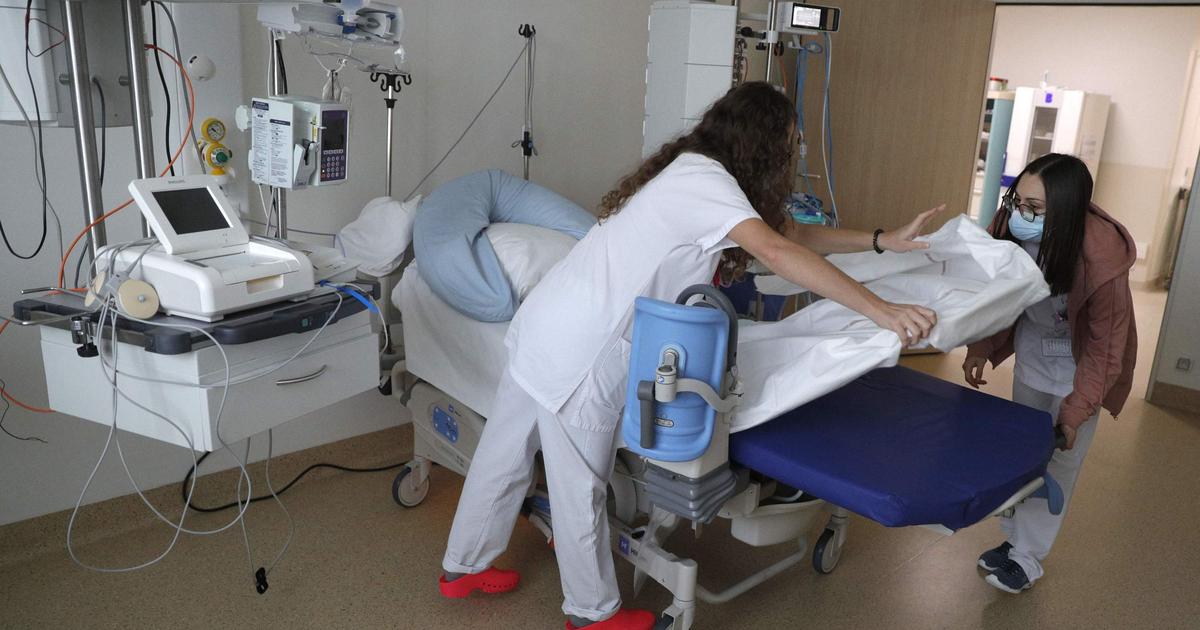Since its launch at the end of December, the French vaccine campaign has experienced many upheavals.
So much so that today some people struggle to have a very clear vision of who can be vaccinated, with what product, where and by whom… There are of course certain honorable reasons for this, starting with the incessant evolution scientific data.
But there are others that are more trivial.
This is particularly the case for vaccine deliveries subject to numerous constraints: regulatory, vaccines having to follow a complex circuit before they can be placed on the market;
geopolitical, the whole world demanding the same products at the same time;
industrial plants, for want of being able to multiply production sites at will and in a snap of the fingers… In such a context of shortage, the choice made by France was therefore to give priority to the most fragile or the most exposed.
But the gradual arrival of the AstraZeneca vaccine is gradually changing the situation.
Especially since it turns out to be much more effective than expected, even in the elderly and from the first injection.
The High Authority for Health and the government have therefore once again adjusted their strategy with the aim of accelerating the pace of the campaign, while continuing to target primarily the populations most at risk of serious forms.
Read also:
AstraZeneca vaccine accessible to over 65s: a new missed opportunity to simplify the French strategy
"March is not going to look like February
, insists the Ministry of Health,
because we are going to return to a system where there will be many more first injections, which should represent 4 / 5th"
of the total achieved (in February, half of the injections performed were second doses).
The objective is, with a
"favorable hypothesis of consumption of the AstraZeneca vaccine"
, to reach at the end of March 9 million people having received at least one dose of vaccine.
The stake is important to hope to gradually lift the restrictive measures: in nursing homes, of which 82% of residents have received at least one injection and 57% both, the effects of vaccination
"are starting to appear"
, rejoices the Ministry of Health.
The subject for now is to successfully deploy the AstraZeneca in the city, the question of whether others will follow is not yet decided.
The Ministry of Health
Among other means of accelerating the vaccination of the most vulnerable, the AstraZeneca vaccine is now available to the elderly.
Until now it was reserved for under 65s, data lacking on its effectiveness in seniors.
But a study conducted in Scotland, and more recently in England, shows excellent efficacy of the viral vector vaccine, equivalent to the Pfizer RNA vaccine.
There is therefore no longer any reason to impose an age limit, considers the HAS.
This has two virtues: on the one hand, it allows those over 75 who are impatient to be vaccinated to have an alternative to their local doctor when they cannot get a vaccination appointment in the dedicated centers, which keep the monopoly of RNA vaccines.
On the other hand, to offer a solution to 65-74 year olds, so far too old to benefit from AstraZeneca, but too young to receive a Pfizer or Moderna vaccine unless they have particular risk factors.
"Everyone is eligible, but we ask doctors to start with those with comorbidities, because they are more fragile,"
said the ministry.
Open the valves
Another lever to accelerate the campaign: open the floodgates for prescribers and vaccinators ever more numerous and accessible.
The HAS therefore renews its February opinion, in favor of vaccination by pharmacists, nurses and midwives.
New, she believes that they should also be able to vaccinate with RNA vaccines.
A point obviously coming up against the complex conservation conditions in force, which require that these products be stored in very low temperature freezers that are absent from pharmacies.
But the US FDA has already authorized, on the basis of new data provided by Pfizer, storage for up to two weeks in a conventional freezer and the European Medicines Agency is said to be working on the file, the ministry said.
Who specifies, however, that
"the subject for now is to successfully deploy the AstraZeneca in town, the question of whether others will follow has not yet been decided"
.
Read also:
Covid-19: why the beginnings of vaccination among general practitioners are difficult
For the possibility of being injected with an AstraZeneca vaccine in pharmacies,
"it will depend on the orders made by doctors to vaccinate their patients"
, indicates the ministry.
Clearly, priority is given to city doctors, who can now obtain up to three vials per week;
as soon as enough bottles have not found takers,
"there will be an opening for vaccination by pharmacists, private nurses, and midwives"
.
The ministry is also preparing to open more widely the vaccination centers (more lines of vaccination, extended hours, weekends…), as the additional doses will be delivered.
The government is eagerly awaiting a newcomer: the vaccine developed by Johnson & Johnson, whose marketing authorization is expected in mid-March
Two other technical measures are intended to make it possible to start protecting as many people as possible by the summer: on the one hand, the extension of the time between the two doses, 6 weeks for the Pfizer vaccine.
On the other hand, by injecting only one dose (this then acting as a reminder) to those who have been infected with Covid-19;
a recommendation made in February by the HAS, and recalled yesterday, on France 2, by the Minister of Health Olivier Véran.
This rule must however be adapted on a case-by-case basis, for example, immunocompromised patients must always receive two doses, whether or not they have a history of Covid.
In terms of acceleration of the campaign, the measure also seems essentially symbolic:
"This will bring us a little air but not significantly
, we slip to the Ministry of Health.
But in terms of visibility of the vaccination course that adapts to scientific data, this is important. ”
Read also:
Only a small minority of caregivers have been vaccinated in the hospital
Finally, the government is impatiently awaiting a newcomer: the vaccine developed by Johnson & Johnson, whose marketing authorization is expected in mid-March, and the first deliveries no later than early April.
Significant advantage: only one dose of this vaccine is necessary, which would greatly simplify the organization of the vaccination campaign.
As for Moderna's vaccine, its availability should improve: a minister on the front line in the management of the campaign assures
Le Figaro
that the Recipharm factory, in Indre-et-Loir, should start production this week.















